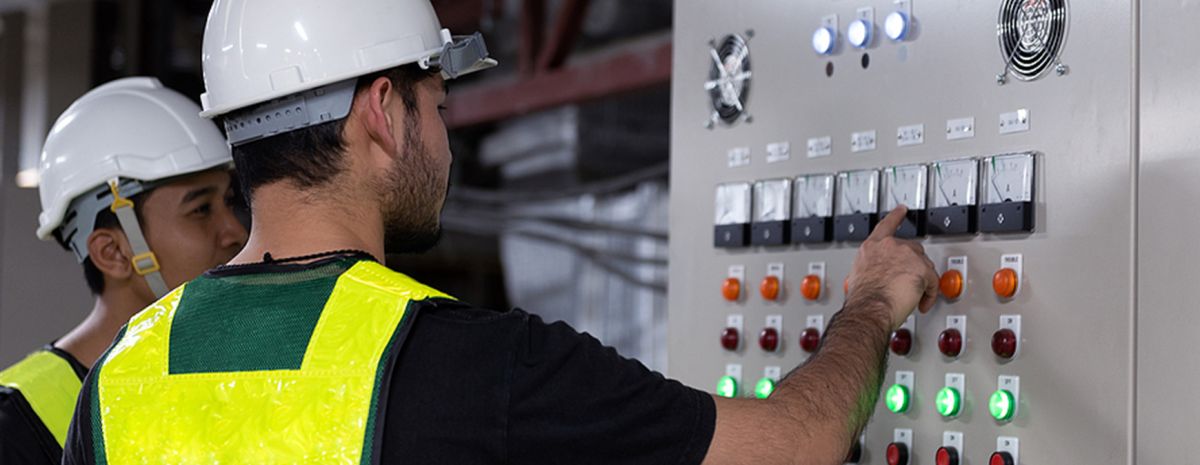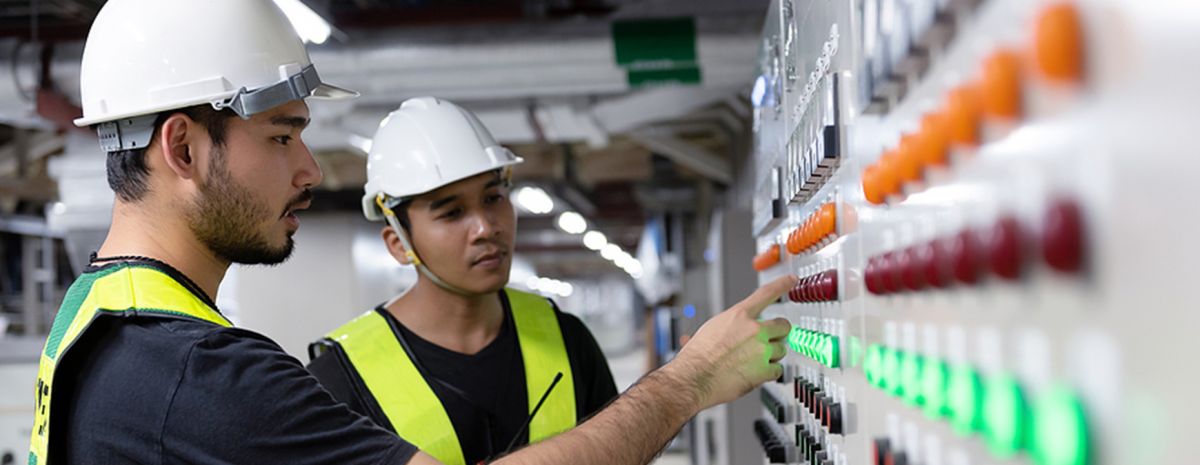RSI is a Great Training Option for Everyone
Learn more about how we can prepare you to advance your career.
An HVAC technician may be tasked with installing HVAC electrical components and wiring as a part of his or her job duties.
While some HVAC techs decide to specialize in one or more areas, such as radiant heating or solar panels, electricity is a common factor across the entire field of HVAC.
So, many HVAC techs have some electrical training and skills.
See more about the electrical knowledge and skills most HVAC techs need in this article.
Electrical Concepts in HVAC
It may be obvious that electricians need to have adequate electrical training, but so do many HVAC technicians.
Get Started on the Path to a New Career
Fill out our form to learn how we can help you change your life.
HVAC techs may work in a wide variety of settings, including schools, hospitals or factories. A job site could include any building that needs heating or cooling. Climate control work can require a diverse array of skills, including an understanding of electrical concepts.
Some electrical concepts that professional HVAC techs may be expected to know include the following:
- Electrical theory: How electricity operates, including electric charges, electric currents and electrical resistance.
- Wiring: The size, type, colors, labels and other considerations for HVAC equipment and thermostat wiring.
- Circuits: The pathway through which an electrical signal can travel, including the conductor, load, switch and cell.
- Voltage: The pressure from an electrical circuit’s power source that pushes charged electrons through a conductor.
The Refrigeration School’s Fundamentals of Electricity course provides students of its HVAC training program and electrician classes with a basic understanding of electrical concepts, including the foundation for control circuit wiring and voltage wiring.
This course is taught in the Electrical Applications, the Electrical Technologies, the Electro-Mechanical Technologies, and the Refrigeration Technologies training programs at RSI.
Electrical Safety Standards
Electricity is a powerful force that gives us our everyday luxuries and necessities, but it can be dangerous when handled improperly.
So, learning electrical safety standards and practices is a key component of an HVAC training program, and a constant part of any professional’s job.
4 HVAC Safety Standards
- Always test that the electricity is turned off before working with equipment.
- Use proper lockout and tag procedures to make sure no one turns the power on while working.
- Test circuits before working.
- Understand and follow all OSHA standards and policies regarding workplace safety.
Electrical Skills

HVAC technicians may perform a variety of tasks on any given day, from installing a dehumidifier to repairing a thermostat. Working with electricity, whether that’s testing components or measuring voltage, can be a common part of the job.
What type of electrical skills will HVAC techs most likely need on a regular basis?
Here are a few ways that HVAC technicians and electricians may work with electricity using the knowledge and skills they have gained from electrical training and hands-on experience:
- Install electrical systems as part of an HVAC team.
- Troubleshoot and repair electrical systems and equipment, such as evaporators, motors and compressors.
- Test and repair electrical wiring, equipment and fixtures.
- Read blueprints and diagrams that show the location of electrical components.
- Assist journeymen electricians in proper electrical setup of equipment.
HVAC Electrical Training
Most states require HVAC technicians to be licensed. Any technician handling refrigerants must pass one or more EPA certification exam(s) on the safe handling and servicing of equipment with these substances.
Vocational training schools offer post-secondary education to teach the skills and concepts needed for entry-level positions in the field of HVAC service and repair.
At The Refrigeration School, our Electro-Mechanical Technologies program is 9 months long and includes program courses in electrical wiring, solar power, comfort systems, refrigeration and troubleshooting. Call 1-888-671-5803 for more information about enrollment.
Additional Sources
This blog has been labeled as archived as it may no longer contain the most up-to-date data. For a list of all current blog posts, please visit our blog homepage at https://www.rsi.edu/blog/




